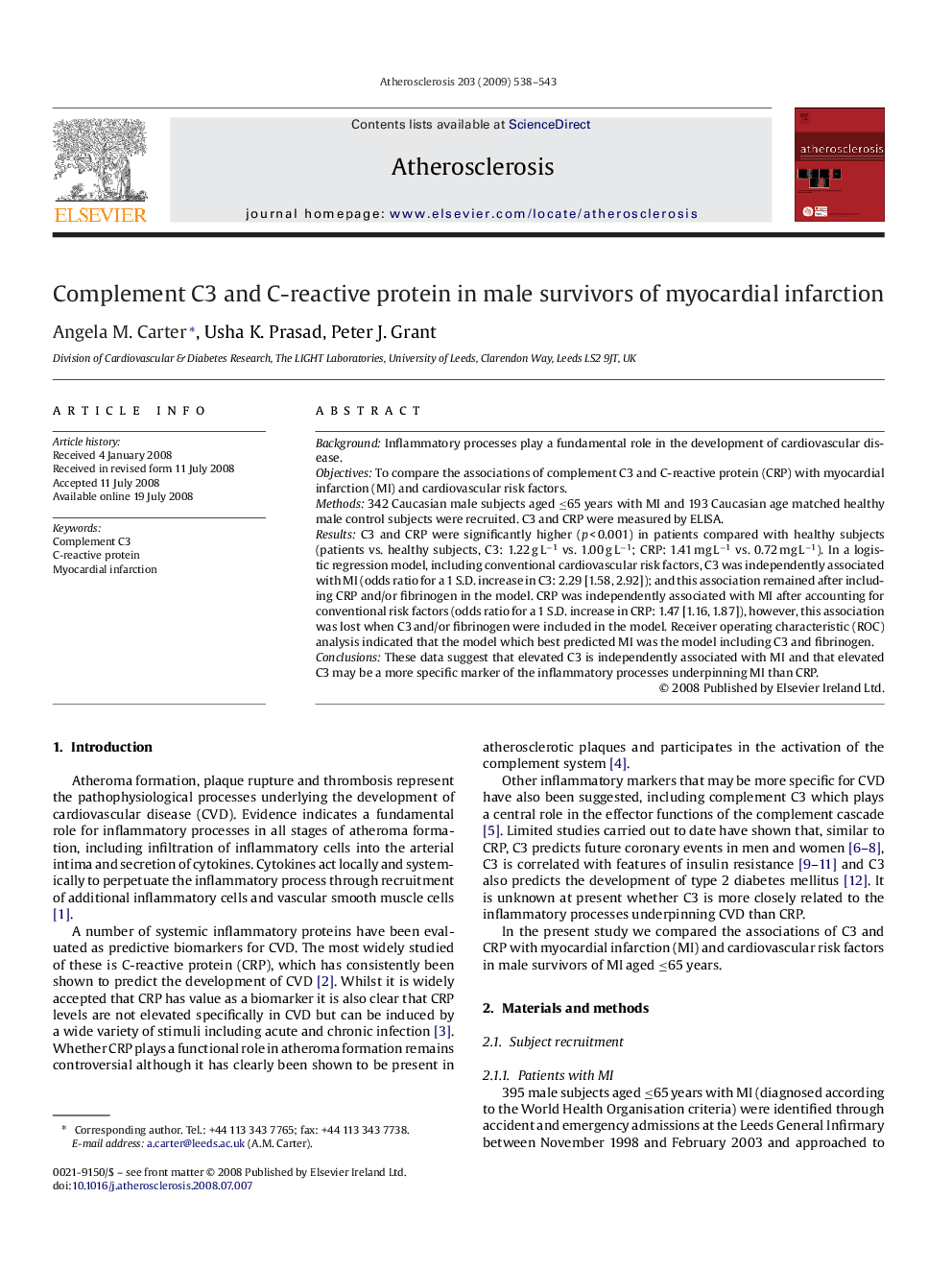| Article ID | Journal | Published Year | Pages | File Type |
|---|---|---|---|---|
| 2893735 | Atherosclerosis | 2009 | 6 Pages |
BackgroundInflammatory processes play a fundamental role in the development of cardiovascular disease.ObjectivesTo compare the associations of complement C3 and C-reactive protein (CRP) with myocardial infarction (MI) and cardiovascular risk factors.Methods342 Caucasian male subjects aged ≤65 years with MI and 193 Caucasian age matched healthy male control subjects were recruited. C3 and CRP were measured by ELISA.ResultsC3 and CRP were significantly higher (p < 0.001) in patients compared with healthy subjects (patients vs. healthy subjects, C3: 1.22 g L−1 vs. 1.00 g L−1; CRP: 1.41 mg L−1 vs. 0.72 mg L−1). In a logistic regression model, including conventional cardiovascular risk factors, C3 was independently associated with MI (odds ratio for a 1 S.D. increase in C3: 2.29 [1.58, 2.92]); and this association remained after including CRP and/or fibrinogen in the model. CRP was independently associated with MI after accounting for conventional risk factors (odds ratio for a 1 S.D. increase in CRP: 1.47 [1.16, 1.87]), however, this association was lost when C3 and/or fibrinogen were included in the model. Receiver operating characteristic (ROC) analysis indicated that the model which best predicted MI was the model including C3 and fibrinogen.ConclusionsThese data suggest that elevated C3 is independently associated with MI and that elevated C3 may be a more specific marker of the inflammatory processes underpinning MI than CRP.
